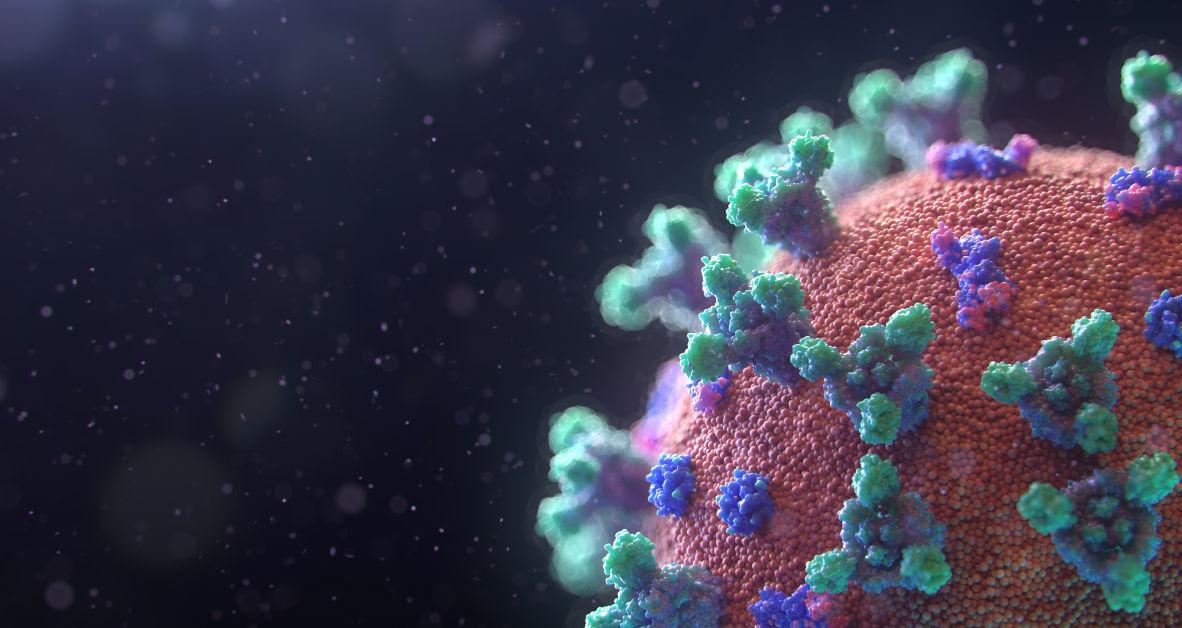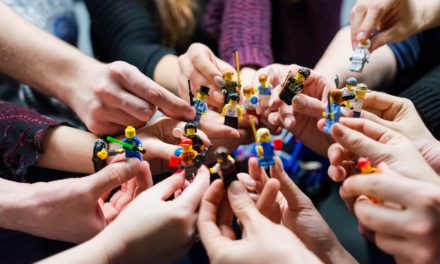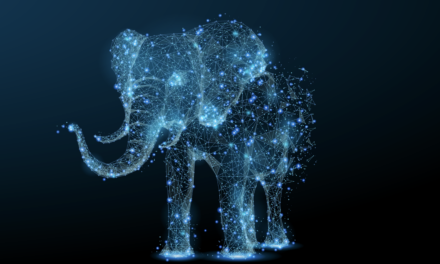1) What is your meaningful destination?
We are at the start of a new age for humanity. There are no maps to guide us; we’ve never been here before. Strategic roadmaps should be discarded for re-routable GPS destinations and a more adaptable approach centred around explorer leadership.
Destinations support and bring to life organisational purpose, vision and strategy. They help teams venture into the unknown, challenge the impossible and return with new knowledge and practices.
What is your team or organisation’s meaningful destination?

2) What futures do we want to build?
In many ways, coronavirus has offered us a window to envisage a possible new future. The pandemic has also made us think about our current lives. Over the coming years the world economy and society will be remade. We have the perfect opportunity to consider what future we want to build.
This does not mean creating a new economy from scratch. Instead, it means improving and changing what’s not working. Each of us can rebuild our lives with more thought and then cascade our influence. It means supporting organisations that demonstrate a commitment to creating sustainable jobs, climate action and ethical transparent governance. It means investing in the technologies of the future and not those of the past, shoring up the inclusive institutions we already have and building the new ones we need.
It means delivering impact by investing in a better tomorrow for people, planet and prosperity.
The future starts with each one of us and the organisations we work for. A brighter future awaits us all, but it will not just happen; we have to make it happen.
What future do you want to build?

3) Which other disruptions are we ignoring?
Eleven years ago, our sister organisation TomorrowToday Global listed pandemics as a key disruptor. Why? Due to migration (from rural to urban) megatrend. Here’s the thing – it took approximately 10,000 years of civilisation. By 2007, 50% of humans, or 3.5 billion, had moved into cities. Amazingly, over a 43 year period the same number will be added to cities again. By 2050, 75%, or 7 billion people, will live in cities. This migration on steroids means the probability of pandemic disruption is high.
There are many other predictable disruptive forces. We call them grey elephants – looming big problems which organisations are unprepared for and/or ignoring. Which risks will impact your business, especially your customers, employees, suppliers and community?:
- Pandemics (other than COVID-19)
- Job losses from AI, robotics and automation
- Climate change
- Ageing demographics
- Increasing government regulation and surveillance
- Inequality – gender and wealth
- Rise of populism
- Food security and feeding 10-billion people by 2050
- Drug resistant viruses
- Cybersecurity
- Crypto-currency
- Plastic pollution
- Environmental destruction
- Extreme Poverty
Which disruptive forces are you ignoring?

4) Are we rethinking our industry’s doctrines?
Lockdown forced nearly everyone to work from home. This level of home-working was unimaginable just a few years ago. What other ways of work, reaching customers, developing products or making profits are in need of a rethink?
Unprecedented times demand we reimagine everything. What other doctrines and organisational orthodoxies need reimagining? For example, what is the role of business in society? Has capitalism run its course? Is there a new type of capitalism?
Which industry doctrines do you believe need rethinking?

5) How are we deploying breakthrough technologies to solve big problems?
Exponential technologies like AI give humans the edge over coronavirus and other disruptions.
Which technologies are you exploring to solve the big problems? As Peter Drucker said, “the world’s biggest problems are also the best business opportunities”. Why wouldn’t you bring in today’s breakthrough tech to solve them?
How are you using breakthrough technology to solve the world’s biggest problems?

6) Are your innovations finding new ground?
We live in an exponentially changing world, and yet most companies’ innovations deliver pedestrian paced change. Incremental developments are not enough to keep up with rapid change. Leaders need to think bigger.
The purpose of leadership is to create and support a culture of exploration and innovation. The aim is to release the full potential of your people so they can go out into the world and make new and inspirational changes.
Are your innovations finding new ground?

7) What emerging industry and consumer patterns are we noticing?
During crises, the leaders tuned towards change seize opportunity to create their future.
For example, at the beginning of the Covid pandemic, Whitbread, owner of Premier Inn and Hub hotels, shocked investors with a huge rights issue to raise £1 billion. Shares tumbled almost 13pc. At a time when most believed that a rights issue was a sign of liquidity problems, Whitbread CEO Alison Brittain wanted the money because their exploration hub had identified a huge opportunity to expand. Brittain planned to use the rights issued to purchase struggling hotels. She aimed to position the business for an anticipated shift in travellers’ behaviours as they realised there’s little point staying in a luxury hotel when social distancing means the bars and restaurants are atmosphere-free zones.
What new opportunities did coronavirus disruption create?

8) What buffers have you created to reduce the impact of disruption?
Buffers soften the impact of any disruptive force, offering valuable time to think, reassess and replan. Social distancing and self isolation are great example of buffers; they were used to slow down the impact of coronavirus on health services.
When disruption hits, you don’t want to be fighting multiple fronts. Buffers are critical components in your strategy to thrive during times of disruption. They act by reducing the initial impact and, importantly, provide breathing space for you to assess the situation and plan your next steps. Advance preparation against possible disruption will offer you a strategic and tactical advantage.
Buffers can be an insurance policy, a financial war chest or an alliance with key partners. They can also focus on mental health and well-being – exercising and eating well are powerful buffers.
Coronavirus offers a powerful lesson: plan ahead and put protective buffers in place.
What buffers do you have in place to soften or slow the impact of disruption?

9) How will your organisation ensure your people’s well-being?
As Winston Churchill said, “never waste the opportunity of a good crisis.” During disruption, people are your greatest asset and we’ve seen how passion and commitment shines through during a crisis. People are adept to change and many even thrive on it. Look after your people, set inspirational targets and they will look after the rest. Without passionate and committed teams, the chances are you will become part of a long list of collapsed organisations.
AS Watson – the world’s largest health and beauty retailer, with over 130,000 employees and 14,000 stores across Asia and Europe – wants to create a future where people feel loved and at the centre of all they do. When coronavirus hit China, the executive team recognised the massive impact the virus would have on its people. They focused on change and explicitly placed customers and employees at the centre of their covid-19 strategy. By the time the pandemic reached Europe, AS Watson were ahead of the curve and acted quickly. The day Italy went into lockdown, a video briefing was held with business leaders from all European operations. They shared and rolled out operational toolkits, including employees’ work arrangements, protective measures, communications, ecommerce and supply chain adjustment. The passion, commitment and love for their brand is now embedded in the DNA of AS Watson.
How is your organisation protecting people’s well-being?

10) What have we learnt from Coronavirus that will help us prepare for other disruptive forces?
The 2020s will be a decade of disruption. Lessons learned now can be perfected and redeployed. Spend time to reflect; ask your team and colleagues what they’ve learnt. Document and share the feedback across your organisation. Develop plans to counter and take advantage of future disruptions.
Do this and next time, as your competitors struggle, you will be ready to find new ground.
What have you learnt from coronavirus that will help prepare for the next disruption?

11) Which other grey elephants are you ignoring?
Business leaders shouldn’t comfort themselves by thinking that coronavirus was a black swan — a black swan describes an unlikely event that has a major impact.
Rather coronavirus was a highly visible but ignored black elephant — a grey elephant is a large visible problem, yet no one wants to address it.
At TomorrowToday Consulting we’ve been warning leaders of the impact of pandemics for over 12 years. In 2016, Bill Gates gave a TED Talk on pandemics and warned the audience.
We’ve known about the danger of pandemics for years but chose to not address it. There are numerous other elephants in the room which many executives prefer not to talk about: growing inequality, climate change, unemployment resulting from AI and automation.
When these disruptions occur, forewarned is forearmed.
What potential disruptions are you ignoring?

Why aim for a 5-10% improvement when you can aim for ten times that? We live in an exponential world and we should strive for a 10x improvement. The combination of tackling a huge problem, coming up with a radical idea, and then working out how to use breakthrough technology or thinking to find a possible solution, is the essence of a moonshot.
Moonshots are bold adventures into the unknown. They are inspirational, poetic and beautiful. They overcome great technological, physical and mental challenges and involve genuine heroism. Moonshots bring people and organisations together and they change the world.
Coronavirus has shown us just how big we can and must think. We need more moonshot thinking for today’s big problems.
What is your moonshot?

13) What is your organisation doing to build back better?
The coronavirus crisis is modern history’s biggest shock to our way of life. It confirms that businesses, communities, society, and the environment are mutually dependent.
The risk of pandemics, climate change, exploitation of natural resources, poverty, hunger and inequalities are both predictable and predicted. Coronavirus exposed our global lack of resilience to a threat that could and should have been prepared for. This must not be allowed to happen again.
As thoughts turn towards recovery, organisations have the opportunity to focus on a new normal that is more resilient, more sustainable and more equitable.
Companies have a unique opportunity to play a leading role in giving back by using their business as a force for good. When this crisis comes to an end, there must not be a return to business as usual. The opportunity to build back a more responsible, caring and considered world might only come along once in a generation.
What are you doing to build back better?

14) How is your organisation adapting to the next normal?
This is the best definition of a disruptive force – a major event that results in a new normal. With disruption there is a before and an after, but there is never ‘going back to normal’.
Lockdown was the new normal, and coronavirus didn’t go away quickly. We had to learn to live with coronavirus. Our next normal.
The next normal resulted in new needs, behaviours and attitudes. Here are three emerging trends shaping the next normal:
- More government intervention and therefore greater scrutiny of business
- We will see the rise of a contactless economy In Europe —13% of consumers were considering online retailers before lockdown; by April, transactions had risen by 81%
- The pandemic plunge — the downturn could end up rivalling, or even exceeding, the 2008 financial crisis in terms of economic damage
These are just some of the headlines. Organisations will need to be more agile, adaptable and resilient.
How are you going to adapt to the next normal?


15) Does our organisation and its leaders have the DNA of an explorer?
Great explorer organisations, like Tesla/SpaceX bring strategy and purpose to life by inspiring people with a quest’s destination. For SpaceX, the quest is to go to Mars. For Tesla, the quest’s destination was creating an electric sports car that would beat a Ferrari. Their latest is the quest to develop a car battery that can run for 1 million miles.
For the explorer organisations, innovation and exploration are more than just buzzwords: they are part of their DNA impacting who they are, what they do and how they do things. Innovation and exploration are central to their strategy. Exploration is the process of new discovery and innovation is a process of continuous learning and improvement. Combined, these build sustainable growth and this sets apart explorer organisations from their peers. It is not that they are better at solving problems, but rather they are better at finding new meaningful problems to solve.
Building the explorer gene into your own leadership and corporate culture will help create the ability to tackle transformative change ahead of you.
Do you have the DNA of an explorer?

16) What conventional wisdoms demand challenging?
Disruption changes how the world works, but conventional wisdoms can remain resistant to change. There will always be those who tell you something cannot be done or cannot work. There is a reason for this.
As something becomes accepted as “best practice,” it is hardwired into the DNA of an organisation, profession or industry. People are encouraged and rewarded for complying and conforming. Deviating violates and places in question the validity of processes that have given power and prominence in the first place. This lasting resistance is what results in the demise of industries and companies. Take a look at the music industry, for example.
Coronavirus challenged conventional wisdoms across multiple fronts. Most companies will try go back to normal. Anything less threatens to violate the validity of what they are comfortable doing. But as Mark Twain said, “It ain’t what you don’t know that gets you into trouble. It’s what you know for sure that just ain’t so.”
What conventional wisdom is disruption making you challenge?

17) Are you partnering with a consultancy that has the trusted ability to deliver new thinking?
Since 2001, TomorrowToday Consulting has been trusted by leaders around the world to help them make sense and take advantage of disruptive change. We excel in the business of releasing human potential. This is where true strategic and competitive advantage exists. At the heart of everything we do is the optimisation of both social and business impact.
A brave new world is beckoning. Are you partnering with a consultancy that delivers new thinking and remarkable results?




